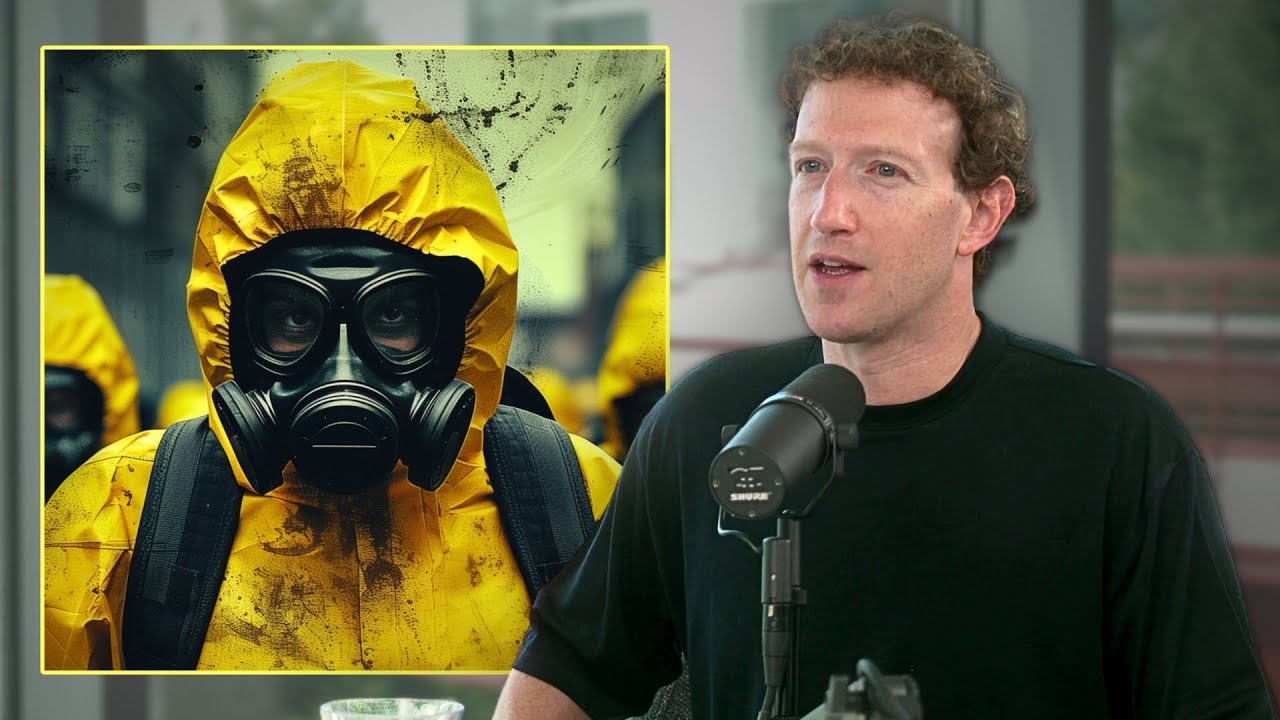Mark Zuckerberg expresses concerns about the risks of bad actors having access to super strong AI technology, emphasizing the importance of open-source AI to create a more balanced playing field and deter malicious activities. He highlights the need for ongoing research, collaboration, and ethical considerations in addressing current and future risks associated with AI misuse while prioritizing the prevention of day-to-day harms.
Mark Zuckerberg expresses concerns about the potential risks associated with bad actors having access to super strong AI. He worries that if individuals or entities with malicious intent possess such advanced AI technology, it could pose significant dangers. Zuckerberg emphasizes the importance of having good open-source AI as a standard to create a more balanced playing field and mitigate the risks posed by powerful AI in the wrong hands.
Zuckerberg discusses the need for mechanisms to prevent bad actors from causing harm with AI systems. He suggests that having open-source AI systems globally can act as a deterrent against malicious activities. By having strong AI systems protecting against weaker attempts to hack or misuse AI, the overall security of AI technology can be enhanced. However, he acknowledges that not all aspects of the world may align with this approach, particularly in areas like bioweapons, which require specific considerations.
The conversation delves into the challenges of addressing existential risks associated with AI, highlighting the focus on current content-related risks such as violence, fraud, and harm to individuals. While discussing the importance of open-source initiatives, Zuckerberg mentions that not every development may be released openly if there are concerns about responsibility and potential misuse of the technology. He emphasizes the need to prioritize mitigating present-day harms while also considering future risks and ethical implications.
Zuckerberg points out the difficulty in predicting all potential risks and behaviors of AI systems, emphasizing the need for ongoing research and collaboration within the AI community. He mentions the complexity of identifying and addressing various harmful behaviors that might emerge, drawing parallels with the challenges faced in managing harmful content on social media platforms. The focus remains on understanding and categorizing harmful behaviors to develop effective mitigation strategies.
In conclusion, Zuckerberg remains optimistic about the potential for open-sourcing AI technology while acknowledging the need to address current and foreseeable risks associated with AI misuse. He stresses the importance of continued vigilance in monitoring and mitigating harmful behaviors enabled by AI systems, emphasizing the responsibility to prioritize the prevention of day-to-day harms in addition to addressing potential existential risks. Collaboration, research, and a commitment to ethical AI development are essential components in navigating the complexities of AI technology responsibly.
